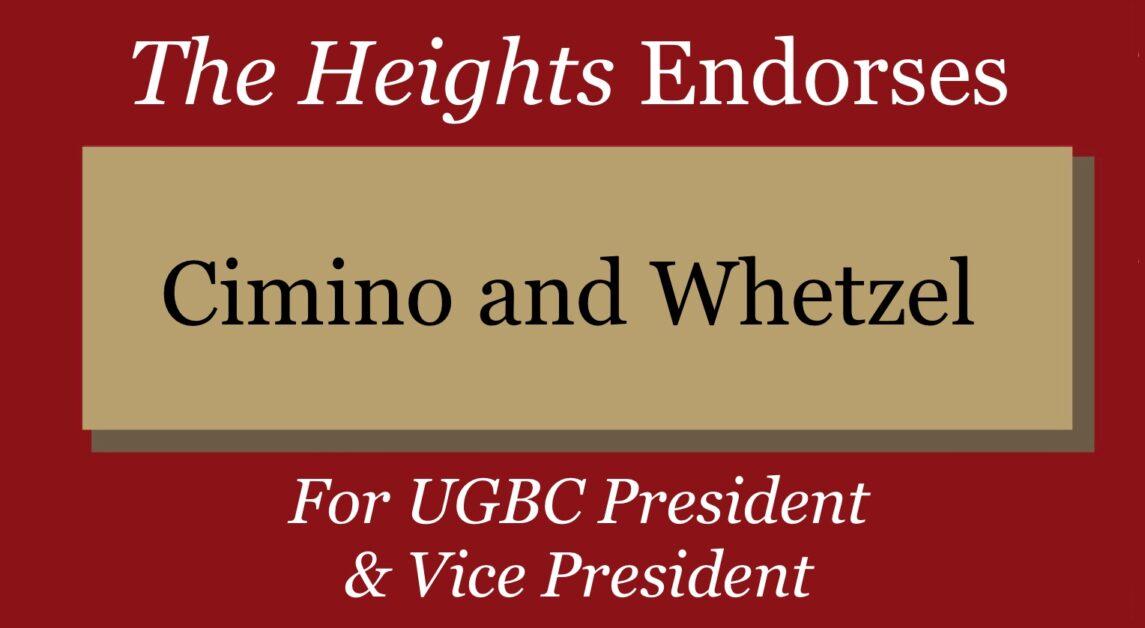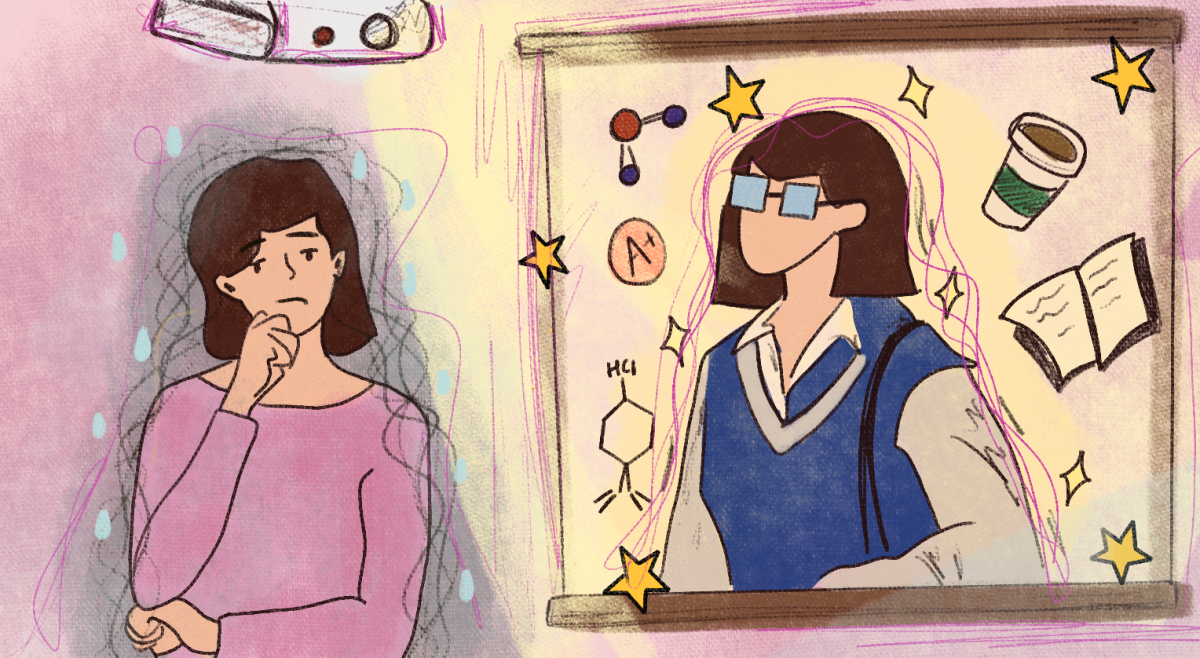This semester, the Dean of Students’ Office (DOS) began an overdue overhaul of the Boston College Student Guide, a handbook of the policies and procedures relevant to students’ rights and responsibilities at BC. DOS has invited the Office of Student Involvement (OSI) and members of UGBC to collaborate on this effort, which will hopefully lead to a document more reflective of students’ needs. While revisions are underway, there are a number of issues that should be kept in mind.
First and foremost, the administration must adjust its procedural approach to Student Guide revisions. In addition to the changes DOS made over the summer, revisions were made this semester as well, according to the JavaScript documentation of the website’s history. As students were not notified in either case, they have no way to know whether the changes were substantial and if they had the potential to impact students’ rights or not. When rules that students are expected to follow and the procedures by which students are disciplined change, the entire student body has the right to know immediately. As the department accountable for the Guide, DOS has the responsibility to inform students via email or otherwise—it is unreasonable to expect students to know the contents of a constantly changing guide. Changes should only be made immediately if they are urgent, and then only with prompt notification. Otherwise, a regular schedule for revisions—at most once per semester—would be the most effective method for DOS to ensure students and administrators remain on the same page.
Within the Guide, Section I breaks down the resources available to students and describes important departments, such as the Office of the Vice President for Student Affairs (VPSA), University Counseling Services, and the Office of Residential Life. Their connection within the broader University administration is unclear, though. On other BC webpages, organization charts delineate the chain of command for departments reporting to the President’s Office, the Executive Vice President’s Office, the Provost’s Office, and the Office of the VPSA. Although several need to be updated to reflect recent hiring changes, the charts should subsequently be linked to the Guide to make upper-level administrative structure clear.
The second section of the Guide offers insight into organizations with which students can become involved, with a special emphasis on UGBC and the school senates for LSOE, CSON, and WCAS. While this is important information, the fact that it makes up a majority of the section is somewhat misleading, as it only accounts for a small portion of the extracurricular experience. “Undergraduate Student Clubs and Organizations” is used as an umbrella for all other groups. It would be excessive to list every single organization on campus, but it would not be unreasonable to have a sentence or two about each category to provide a better idea of what is available.
Section III lays out the programming policies that the University has set for student groups, and although it goes into great detail, some portions remain ambiguous while others espouse bad policy. Through a reference to the OSI website, the Guide makes mention of the training necessary for RSO leaders. In addition to the difficulty in locating the policy—due to the lack of a link—the policy itself is problematic. Poorly attended, leadership training events are of dubious utility for the students who do show up. Although it is understandable that club presidents and treasurers should receive training—as they do control money allocated to them by the University—it is not clear what purpose the training is supposed to serve for other members.
In fact, many of the links that connecting the Guide to other parts of the BC website are dead links, which need to be updated. Additionally, there are a number of recurring inconsistencies in terminology and office names—such as the outdated “Student Programs Office” or “SPO,” and “Office of the Dean for Student Development” or “ODSD.” These are relatively minor issues when compared to the policies’ substance, but nonetheless pose an unnecessary challenge to students trying to parse its contents.
A policy under contention recently, which is neither well known nor mentioned in the Guide, is the prerequisites for RSO membership. Currently, unregistered student organizations with graduate student members cannot be registered. Although it is logical for the University to try and ensure that undergraduates get the most out of an extracurricular experience, with appropriate restrictions on graduate students—such as not allowing them to be club leaders—their participation in RSOs need not limit the undergraduate experience. While not RSOs, athletic teams and cheerleading are two examples of organizations in which graduate and undergraduate students have successfully integrated, and they could provide a model for RSOs. Another concern is that RSOs—unlike the athletic teams and cheerleading—are funded by the Student Activities Fee (SAF), which graduate students do not pay. This, too, can be remedied by requesting that graduate students who wish to participate in extracurricular life pay a portion of the SAF to defray the cost. Even if the University decides not to change this policy, they should at the very least update this section to make it unambiguous.
Sections IV and V outline community standards and student conduct policies. Although these two sections are overall the most detailed and clearest in the Guide, some parts could use even greater specificity. In the fourth section, sub-sections that deal with failure to comply; marijuana policy; the right to express, agree, and disagree with different opinions; and the right to protest are all ambiguous. The policies on protesting are unclear and allow for the potential restriction of open discourse on campus, and the Guide does not provide the necessary forms, should student groups wish to register protests.
Another aspect of the conduct policy that needs to be clarified is the section outlining the appeals process. According to Section 5.6, students have the right to appeal a conduct decision “If the student demonstrates that the University committed a material procedural error that was likely to adversely affect the result of the conduct adjudication.” Nowhere does the Guide define what a “material procedural error” is, however, which potentially allows for administrators to make arbitrary decisions with no clear basis. Additionally, the lack of clarity can dissuade students from appealing a decision.
The final section, a catch-all of remaining policies and procedures, has similar problems to the fourth and fifth sections. The language used to describe the permission needed for students to solicit on campus gives DOS the discretion to deny permission for any reason at all. If the University is committed to a free exchange of ideas—which it ought to be and claims it is—then it must not impede such exchanges, other than for instances that are legitimately injurious to students or faculty. Solicitation requests should still be submitted to the DOS in order to prevent excessive badgering of students by solicitors. It should, however, rescind the policy of deciding behind closed doors what messages are allowed to be shared with the larger student population, and by which groups.
As UGBC, DOS, and OSI prepare to revise the Guide, they should consult with students in focus groups and open town hall meetings to gain as many perspectives before the Dec. 5 proposal deadline as possible. For their part, students should take advantage of the opportunities available to share their ideas.
Featured Image by Graham Beck / Heights Senior Staff











